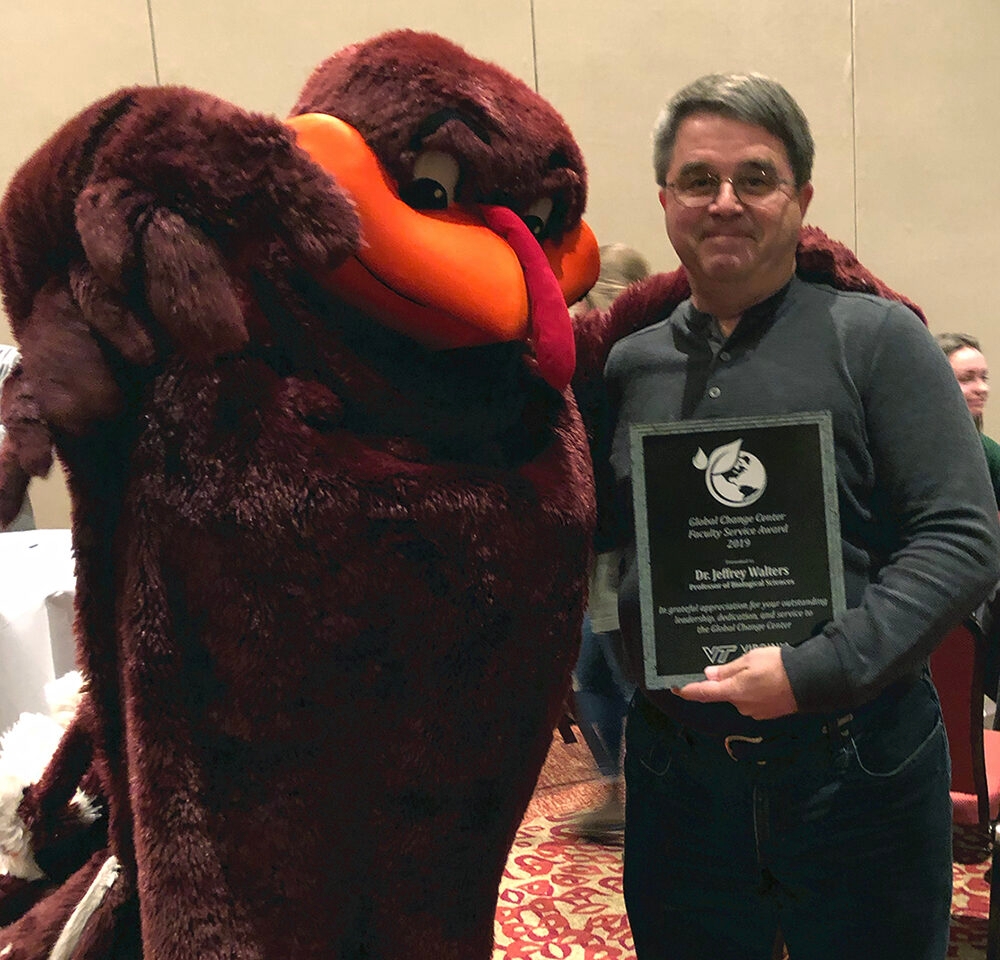Faculty Spotlight: Jeff Walters
November 30, 2021

November 30, 2021

Jeff Walters joined the Virginia Tech community in 1994 as the Harold H. Bailey Professor in the Department of Biological Sciences. He has served on the editorial boards of multiple journals and has published more than 150 peer-reviewed papers and book chapters on subjects pertaining to conservation biology, behavioral ecology and population biology. Walters received the 2002 Elliott Coues Award from the American Ornithologists’ Union, the 2013 Virginia Tech Alumni Research Award for Research Excellence, the first annual Global Change Center Faculty Service Award in 2019, and two awards from the U.S. Fish and Wildlife Service for his conservation and teaching activities. Walters acts as the graduate director for the Department of Biological Sciences and is a member of the Integrative Organismal Biology group.
Walters is also a founding member of the Global Change Center. Helping to lay the framework of what is now an 80+ faculty-strong program in 2014, he remains an integral leader in the community. He currently advises Interfaces of Global Change (IGC) Fellows David Millican, Noah McNeill, Leah Novak, and Amber Wendler and advised Alumna Fellow Maya Wilson. Drawing from his own experiences, Walters is also an active contributor to the IGC curriculum, to include leading Fellows through science arbitration exercises.
Specializing in the behavioral ecology and conservation of birds, Walters has worked effectively with government agencies, NGOs, and the public to achieve and promote conservation of bird populations. His research of endangered birds has taken him across the world from the pine forests of the Bahamas to Namibian Dry Savanna. And while his research has taken him to far lands, much of his efforts have been closer to home with the Red-Cockaded Woodpecker. Walters has studied populations of red-cockaded woodpeckers in the North Carolina Sandhills since 1980, and in Florida since 1995. His work has provided insight into the species’ unique cooperative breeding, allowed him to develop science-based population management strategies, and has emphasized the impact of climate change on the species’ survival.
Along with his research, Walters is also actively engaged in the science-policy interface, frequently serving on panels that evaluate relevant science to inform important policy decisions and in management applications of research. He has served on the National Academies of Sciences, Engineering and Medicine’s Committee on Everglades Restoration Progress six out of nine times that the committee has convened since 2004. As part of the Water Resources Development Act of 2000, the Comprehensive Everglades Restoration Plan seeks to return the Everglades to its natural beauty and create a water system that serves both the natural and the human needs of South Florida. The most recent report, Progress Toward Restoring the Everglades: The Eighth Biennial Review – 2020, was made public in August. More about his work with the committee can be read in this recently published article.
For more information about Walter’s research and engagement in science policy, please visit the Walters Lab Website.









